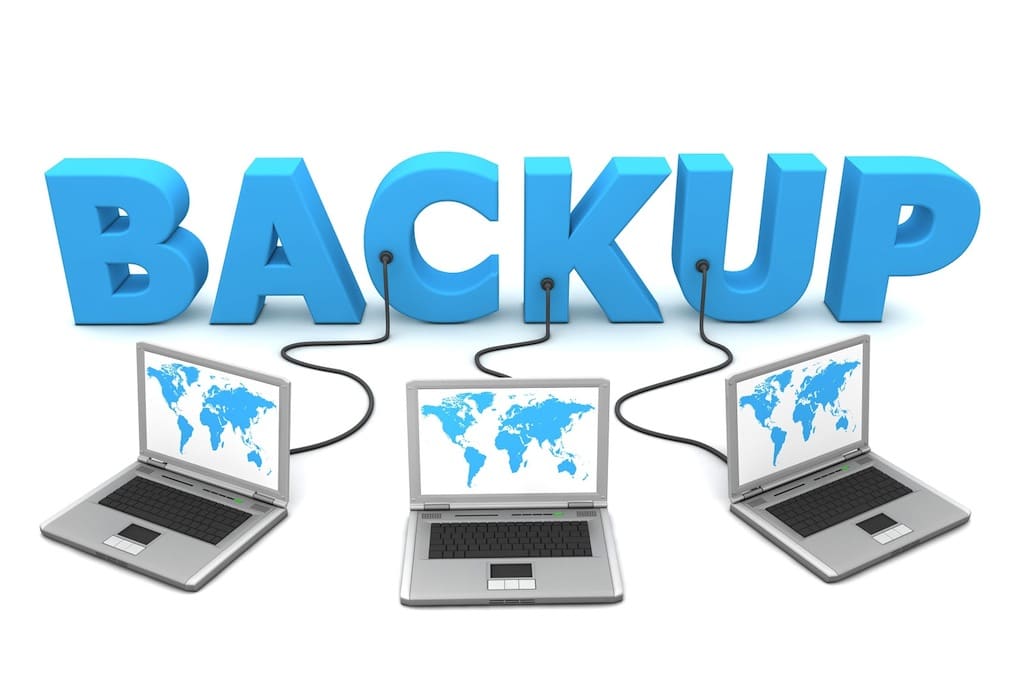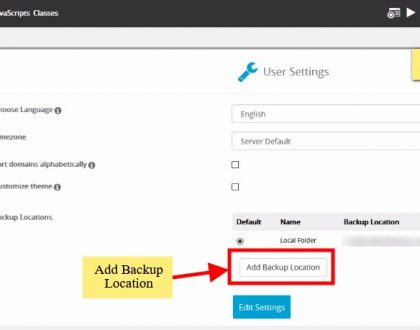6 Reasons Why You Should Backup Your Website

We’ve all heard a lot of talk about the importance of backing up your external hard drive just in case something should happen to your computer. There are few things more painful than knowing that all of your precious files have been lost forever because they haven’t gone through the backup process to an external drive.
The same holds true for websites. It seems like every day there is a new headline about the latest high profile website crash. Don’t fall victim to a website crash because you didn’t have a backup solution in place.
Unfortunately, website threats are very real. Backing up your website helps you to safeguard against those threats. Use this website backup guide to help you through the process of saving website files and your online databases. By knowing the importance of a backup, you will be more motivated to follow a regular backup schedule for your own website.
1. Website Hackers
In this day and age, hackers have become commonplace on the web. While the aim of a hacker may be to steal credit card numbers and other sensitive information, often people hack websites merely to prove themselves or cause trouble. If your website is online, there is always the chance that it may become compromised. Making sure your site is secure and backed up is the only real way to protect your site from being hacked.
2. Computer Catastrophes
Storing a copy of your files on your computer is a good idea, but should your machine crash, get lost, or fall off a cliff, then your files will be gone with it. Backing up your files remotely is a more practical option in the event that something happens to your computer.
3. Updates Gone Wrong
Regular updates refer to updated features and increased security, but they don’t always go as planned. This is why WordPress always tells you to perform a backup before updating. Websites have multiple components, including plugins, themes, software, and back-end programming. An awry update to any of these can take an entire website offline for an unforeseen amount of time.
4. Malware and Viruses
Viruses, trojan horses, and other malware can find their way into your website through many different avenues, even via third party sites that are normally safe. You can download them unknowingly with a theme or plugin, or they can slip in through a crack in your firewall’s armor. Having backup files means that you’ll be prepared just in case your site starts acting strange.
5. Employee Errors
The truth is that people make mistakes. It’s perfectly possible that an employee or contractor might click a wrong button or delete a necessary file by accident. When you backup your files, there’s less chance that human error will mess up your operations.
6. Minimize the Damage
Say you log onto your website one day, only to be greeted with an unfamiliar error page. You try again and again, but the main page still doesn’t come up. You get a sinking feeling in your stomach as you realize that something has gone wrong. Knowing that your site is backed up and secure will bring relief if you are faced with this type of situation. Backing up your site can keep you stress free when it comes to worrying about losing your site data.
How To Backup Your Website
If by now you’re convinced that backing up your website is the right thing to do, there are a few ways you can go about it. Below is a step-by-step guide that will teach you how to backup a website to restore it incase of data loss.
Contact the person who designed your website and ask them to do it for you. They should have enough knowledge of how content management systems work that they would be able to do a manual backup for your files.
Use an additional “just in case” backup service. Many of these services exist, and you can easily find them by doing some research. Some are more cost effective than others, while others have software that’s more or less user friendly.
Install a backup plugin on your site. Some backup plugins allow you to schedule automatic backups, as well as send your files to cloud storage services like Dropbox.
If you have a smaller website, you might just choose to compress your files in a ZIP folder and email them to yourself. Again, this works best for small websites. So if the size of your files is bigger than your email provider allows you to send, or if you expect that the size of your site will expand, it might be beneficial to look into one of the other backup options.
It’s a good idea to also save a copy of your files on your computer, though you should also do this in addition to one of the other backup services or techniques. Having two or more copies of your files is never a bad idea. As the old adage goes, better safe than sorry.
Backing up your site doesn’t take a lot of time or money, and it it’s a worthwhile investment considering all of the threats that exist online. Backup your website today, and avoid becoming one of those anxiety-ridden business owners who must reluctantly restart their website from scratch. Follow these website backup steps above to have peace of mind with your website files.
Recommended Posts

Backup your site to Google Drive & Dropbox
24th January 2021

Manage your sites with WordPress Manager
24th January 2021

Push To Live your Staging with Softaculous
24th August 2018
